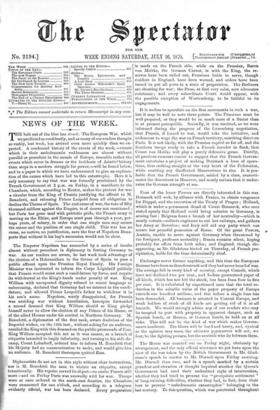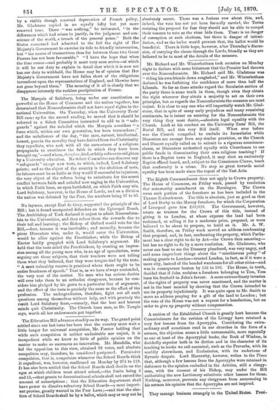The House was counted out on Friday night, obviously by
arrangement, and the only official utterance we yet have upon the view of the war taken by the British Government is Mr. Glad- stone's speech in answer to Mr. Disraeli upon Friday morning. Mr. Disraeli then rose, and in a speech marked by a certain grandeur and elevation of thought inquired whether the Queen's Government had used their undoubted right of intervention, whether they had tried to prevent the "precipitate settlement" of long-existing difficulties, whether they had, in fact, done their best to prevent " melodramatic catastrophes " belonging to the last century. To this question, which was penetrated throughout
by a visible though reserved deprecation of French policy, Mr. Gladstone replied in an equally lofty but yet more reserved tone. There " was nothing," ho intimated, " in the differences which had arisen to justify, in the judgment and con- science of the world, a breach of the general peace." Both the States concerned had admitted to the full the right of Her Majesty's Government to exercise its title to friendly intervention, but " the course of transactions thus far between those two Great Powers has not been favourable." "I have the hope that when the time comes—and probably it must very soon arrive—at which it will be our duty to explain in detail that which it is now not less our duty to withhold, the House may be of opinion that Her Majesty's Government have not fallen short of the obligations incumbent upon the representatives of England, and likewise have not gone beyond them." The meaning of it all is clearly that we disapprove intensely the reckless precipitation of France.































